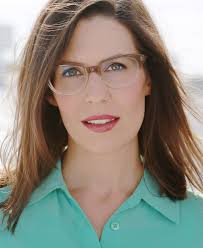Austin Playhouse interviews the playwright of
The Book of Will, Lauren Gunderson.
We close our 19th Season with The Book of Will by Lauren Gunderson. The Book of Will tells the story of the determined community that begged, borrowed, and stole so that they could publish the true versions of Shakespeare's plays in the First Folio.
Austin Playhouse was thrilled when Lauren Gunderson agreed to answer a few of our questions about The Book of Will.
You may recognize Lauren Gunderson's name if you have visited Austin Playhouse recently. The Book of Will is the third Gunderson play Austin Playhouse has produced. Past productions include Silent Sky and Miss Bennet. Check out the interview below!
AP: The Book of Will is about the community that came together to print Shakespeare’s First Folio. How did you know that this would make a great story and why did you feel it was important to tell?
LG: This is a story less about Shakespeare and more about community. It's about friends, legacy, and what we can accomplish when we come together. It's also a love letter to theatre and how great storytelling can resurrect, inspire and bring people together.
AP:The story of The Book of Will could feel like a history lesson, but you humanize these characters in a way that everybody can relate to. Why did you feel that was important and how did you begin that process?
LG: Shakespeare doesn't need much help being glorified, he needs help being humanized. I saw this play as a way of finding what is human and true and funny and awkward and lovely and hard about Shakespeare through his best friends.
AP: One of the things we love about your plays are the vivid, compelling female characters. How do you see their role in the world of The Book of Will?
LG: I see everyone's role as supporting the group. The women are equal members of this group and join their tribe in doing something impossible.
AP: While doing research on this historical event, did you wish that you knew more about the real people in the story or were you pleased to be able to fill in storylines?
LG: So much! Come to the play and see!
AP: What do you hope the audience will take away from the story of The Book of Will?
LG: That life is short but the life of stories can be long lasting. By telling stories and watching stories we get to time travel, to reconnect and to life our best lives in conversation with art and the full human experience.
AP: And our last question, do you have a favorite Shakespeare quote? If so, what is it?
"Love alters not with his brief hours and weeks,
But bears it out even to the edge of doom.
If this be error and upon me prov'd,
I never writ, nor no man ever lov'd."
The Book of Will runs May 31 - June 30 at Austin Playhouse at ACC Highland. Performances are Thursday - Saturday at 8pm, Sunday at 5pm. Call 512-476-0084 or online here. www.austinplayhouse.com







